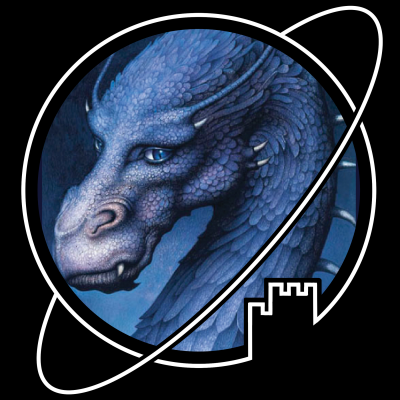- Book written by Christopher Paolini
- Published in 2005
- Part 1 of the Inheritance Cycle
When poor farm boy Eragon finds a mysterious stone in the forest, he initially takes it home to sell. However, he soon realises that his find is in fact a dragon egg – and when it hatches, everything changes. Forced to flee from the agents of the King that are after his dragon Saphira, Eragon embarks on a series of dangerous adventures that will take him and Saphira and all over the Empire, all the while growing their strength and strengthening their bond.


Ok so I know Christopher Paolini was like 15 when he wrote Eragon, but that doesn’t mean it has to be bad. Unfortunately it is. I truly have rarely felt rage the way I felt it while reading this book. It reads like it hasn’t been edited. It reads as if no one bothered to point out many awkward sentences that really have no business being in a final draft. Not to mention the bland characters and cookie-cutter fantasy plot.
I’m sure the sequels must be much better but I really wasn’t interested after having fought my way through Eragon. I suppose it was well written for a 15 year old? I just don’t get why it is so famous.
I would like to stress that when a book that has been published is this bad, it is much more the fault of the publisher than it is the fault of the author, especially in the case of a book written by a literal child. It is the publisher’s responsibility that a work that they put their name on be well edited, and that an author (especially a young author and/or first-time author) gets the guidance they need to edit their book. Writing a novel is a huge undertaking and to put the blame for a bad book on the author alone would be both naive and disrespectful to the work they undoubtedly put into it.
Also the cover art for these books fills me with rage. How could you draw such an ugly dragon?

I (relatively) recently reread Eragon, because I started the Inheritance Cycle way back when I was in middle school, and never finished it – I think I may have finished Brisingr, but never started Inheritance – and I was curious how the whole thing would end.
When I first read Eragon as a ten year old kid coming fresh off watching (and reading) The Lord of the Rings, I liked it as a cool adventure story with cool dragons, a cool mentor-character, cool enemies, a mysterious-sounding prophecy and a cool big battle at the end. It worked for me then.
Rereading it now, after having read a lot more in the genre (and generally having grown up somewhat), I am a lot more critical. Eragon is not exactly poorly written, but it follows the established tropes of the fantasy genre so closely – the chosen youth with the mysterious parentage, the old mentor figure with an equally mysterious past, the evil empire with an ancient emperor, undead lieutenants and a horde of baby slaying not-orcs, the woodland elves, the mountain dwarves, the elven maiden love interest – that it becomes rather predictable to the more seasoned reader. Paolini seems to have come up with rather little worldbuilding himself – he has a functional fantasy world, but his relatively hard magic system is the only element that deviates slightly from the trope-ical medieval fantasy setting.
Thinking back, the element I liked most was the bonding story between Eragon and his dragon (though really, a little conflict between the two might have spiced that up). Beyond that and the accessibility to younger readers, there are few compelling reasons to read Eragon over the plethora of other fantasy books out there.
Having said that, I wish I could recommend Eragon to younger readers because I feel that it worked well for me when I was their age, but having finished the series, I find that difficult. It feels like the mystery of the prophecy was wasted in the later installments, very little worldbuilding of interest was added, and the ending of the fourth part was flat-out disappointing.
Overall, whilst Eragon, the first book in the series, is a decent introduction to the genre (if entirely unoriginal), the other three parts do not make for a satisfying read, especially for more veteran readers. It is therefore perhaps a bit of a pity that Eragon has become somewhat of a modern classic of the genre.





